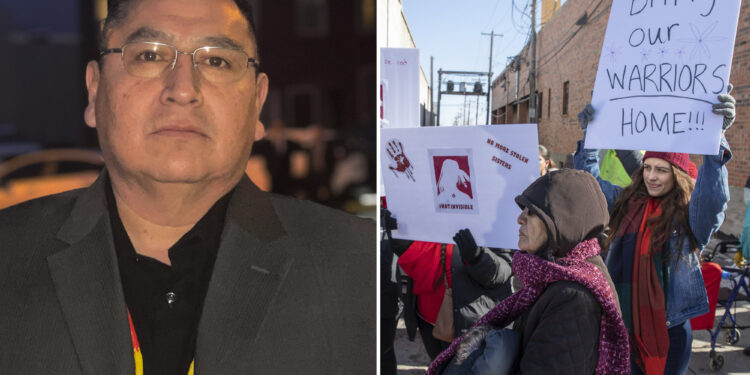
Rampant crime has overcome the largest Native American reservation in South Dakota and the federal government has stalled in helping to beef up law enforcement there, according to its tribal leader.
Frank Star Comes Out, president of the Oglala Sioux Tribe, is expected to declare a state of emergency on the Pine Ridge Reservation as gun violence, drug offenses and rapes have become increasingly common on the Pine Ridge Reservation, according to reports.
There are only 33 officers and eight investigators responsible for over 100,000 emergency calls a year on the 5,400-square-mile reservation, officials have said.
Only four or five officers are on duty at a time, causing hours-long response times — or no response at all.
“With five police officers, it’s just impossible,” Star Comes Out said in an interview Friday.
“Our officers are overworked, underpaid. They’re outmanned. And it’s dangerous for them to respond to calls by themselves.”
Oglala Sioux officials say they are entitled to funding for 120 officers but federal officials dispute that, in part because their population counts are far less than the tribe’s.
Earlier this year, a federal judge ruled that the government has an obligation to support law enforcement on the reservation, but declined to determine if the tribe should get the full funding it is seeking.
U.S. District Judge Roberto Lange did, however, tell the federal government to reevaluate its census counts and order US officials to meet with tribal leaders over funding.
“In recent years, communities on the reservation have struggled with dangerous and highly addictive drugs and experienced unprecedented levels of violence and threats to public safety,” Lange said earlier this year.
“In the Tribe’s view, a lack of competent and effective law enforcement on the Reservation is a big reason for the crisis.”
The outcome on Pine Ridge could impact other tribes across the country, like in Montana, where a similar case was filed.
On some reservations, indigenous women are murdered at more than ten times the national average, according to the Indian Law Resource Center.
With Post wires



























